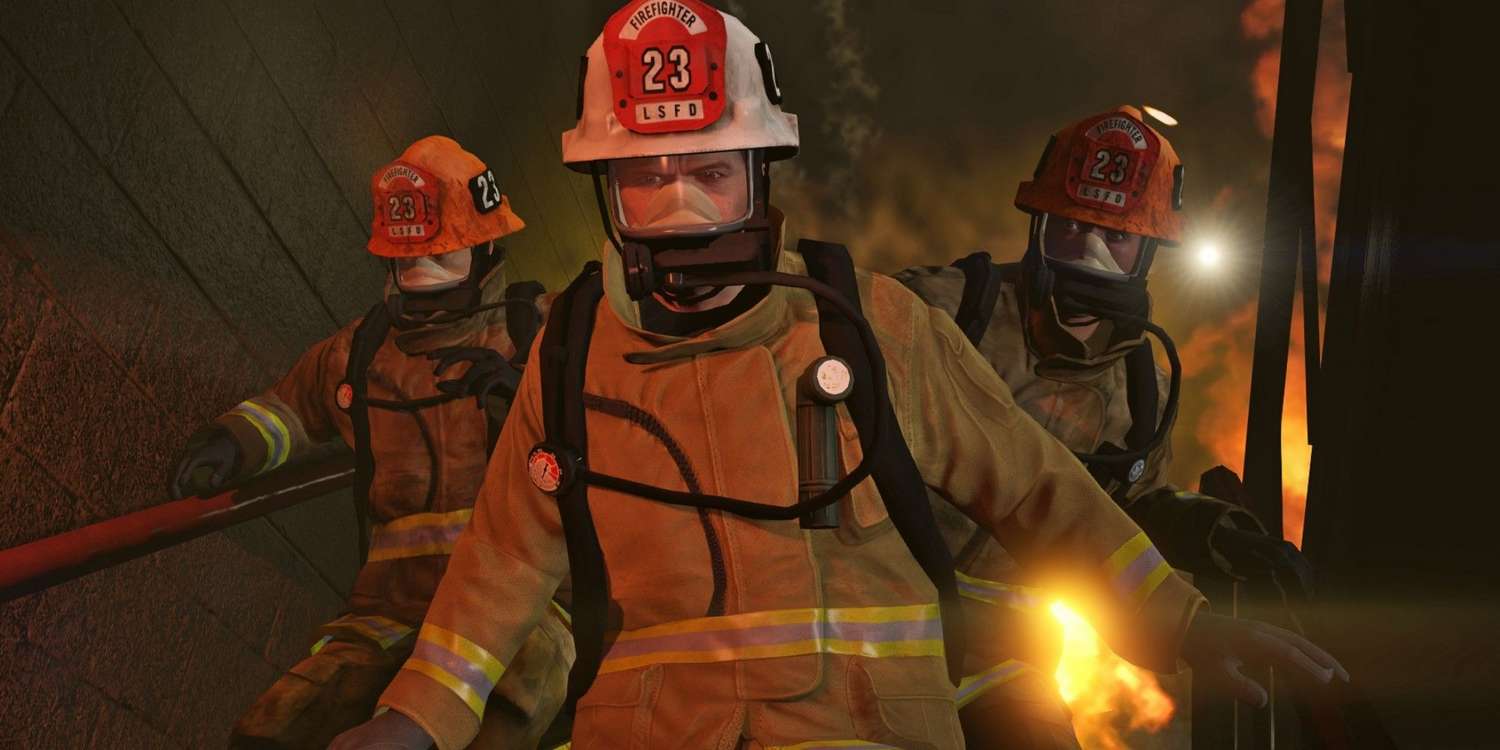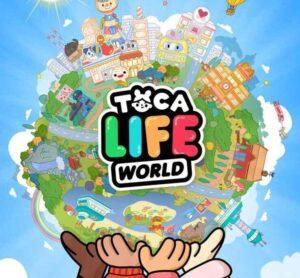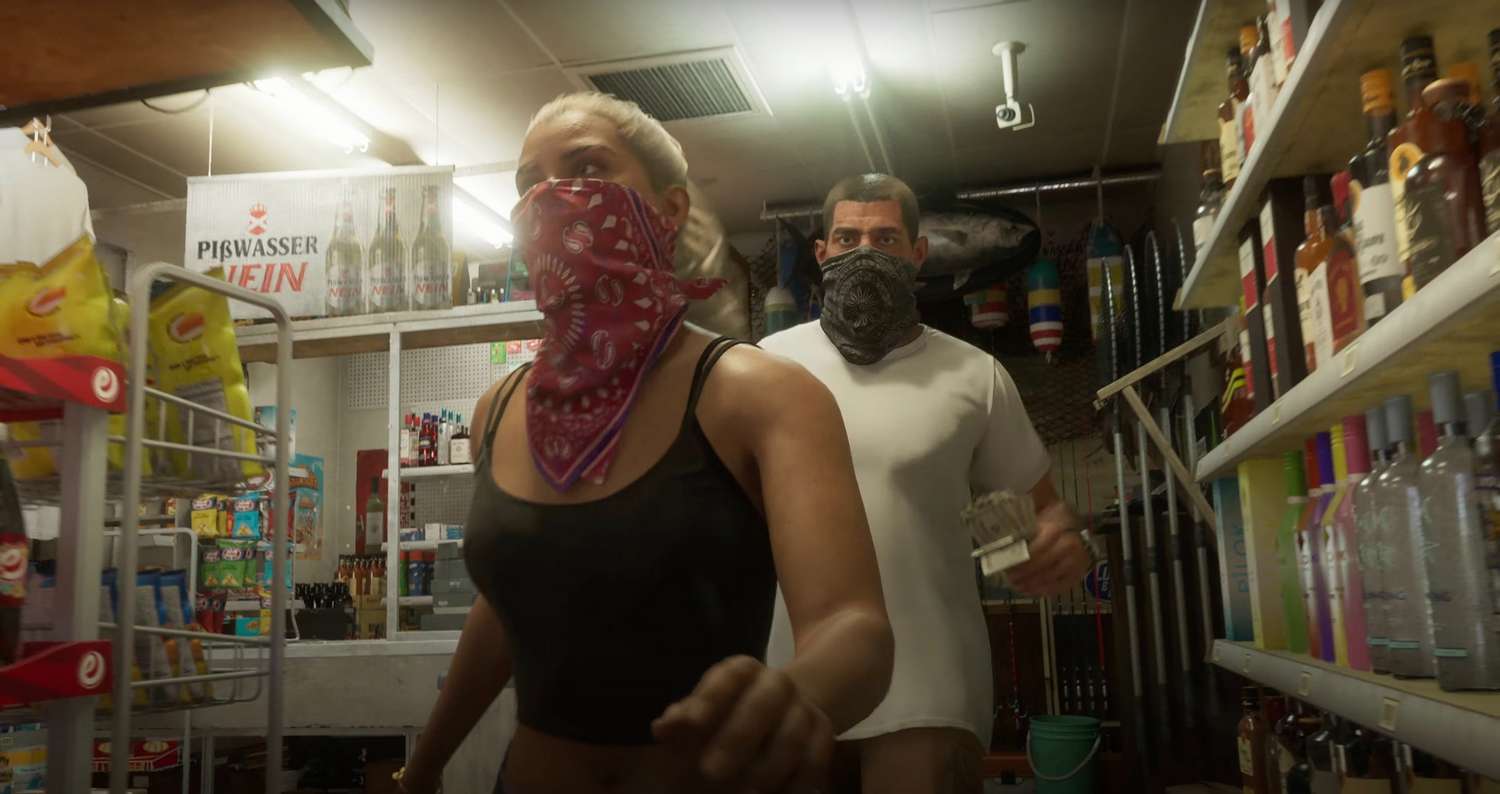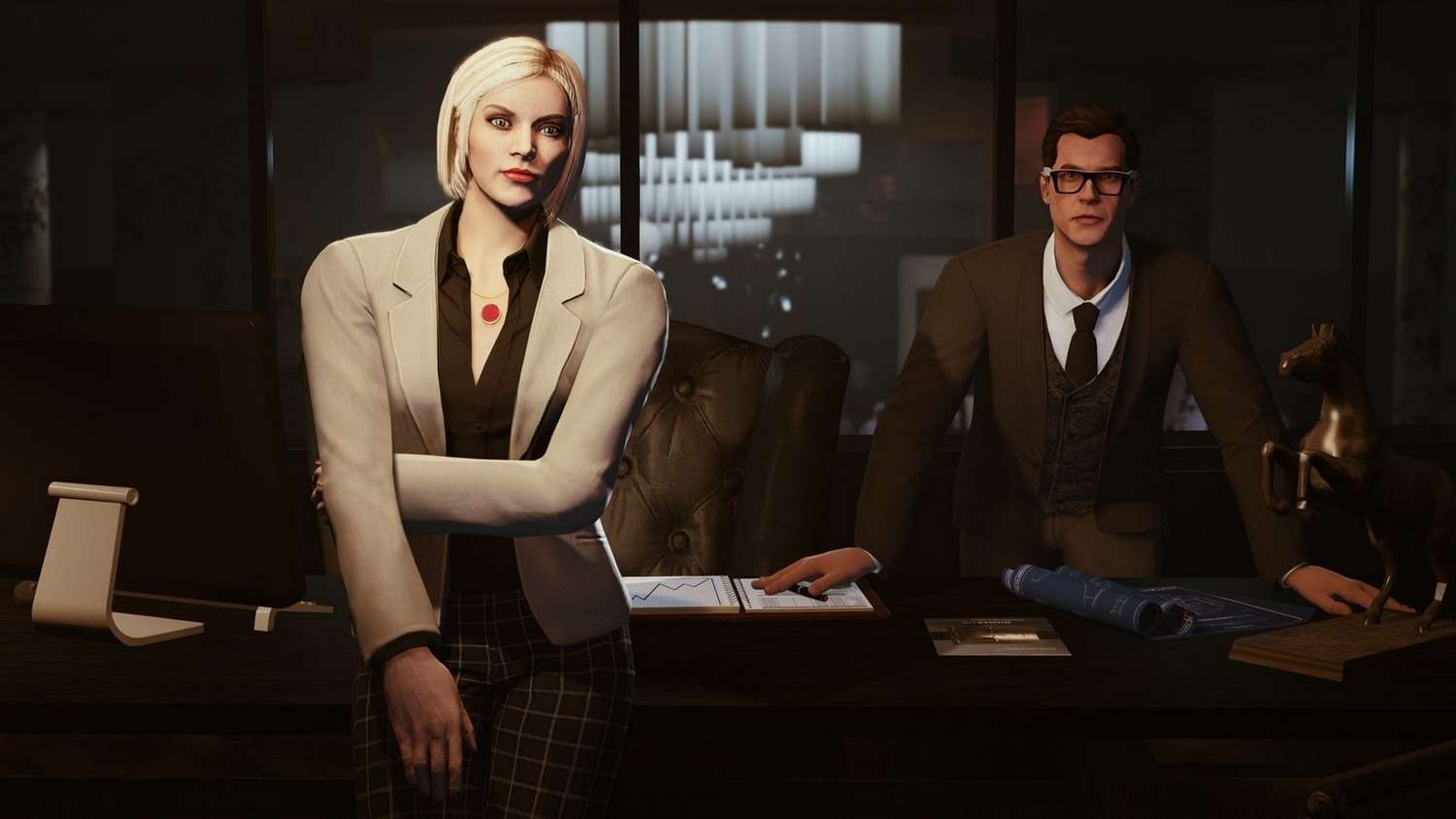Controversy Erupts at Rockstar Games: Firings Spark Union-Busting Allegations Ahead of Grand Theft Auto VI Launch
Popular Now
 Among Us
Among Us
 Genshin Impact
Genshin Impact
 EA SPORT FC 25
EA SPORT FC 25
 Roblox
Roblox
 Stumble Guys
Stumble Guys
 PUBG Mobile
PUBG Mobile
 Minecraft
Minecraft
 NBA 2K24
NBA 2K24
 Rust
Rust
 R.E.P.O
R.E.P.O  The highly anticipated release of Grand Theft Auto VI (GTA VI) continues to be overshadowed by significant internal turmoil at its developer, Rockstar Games. In a dramatic turn of events, the studio—renowned for creating one of the most successful and profitable video game franchises in history—has recently dismissed dozens of employees across its UK and Canadian offices. These firings, which come just months before the expected May 2026 launch of GTA VI, have ignited a fierce public dispute, with labor groups accusing the developer of blatant union busting activities.
The highly anticipated release of Grand Theft Auto VI (GTA VI) continues to be overshadowed by significant internal turmoil at its developer, Rockstar Games. In a dramatic turn of events, the studio—renowned for creating one of the most successful and profitable video game franchises in history—has recently dismissed dozens of employees across its UK and Canadian offices. These firings, which come just months before the expected May 2026 launch of GTA VI, have ignited a fierce public dispute, with labor groups accusing the developer of blatant union busting activities.
The news, first reported by Bloomberg and confirmed by various industry outlets, details the termination of an estimated 30 to 40 staffers. While Take-Two Interactive, Rockstar’s parent company, maintains that the dismissals were due to “gross misconduct” and other undisclosed disciplinary reasons, the Independent Workers’ Union of Great Britain (IWGB) has strongly refuted this claim. The union asserts that all affected individuals were either members of a private Discord group dedicated to union organization or were actively engaged in attempts to unionize, labeling the action as the “most ruthless act of union busting in the history of the UK games industry.”
This escalating conflict places a major spotlight on developer working conditions and labor rights within the $180 billion global gaming market, particularly at a company associated with the immense financial stakes of a title like GTA VI. The high-stakes environment surrounding the game’s development appears to be reaching a critical peak.
The Core of the Dispute: Union Activity Versus Company Policy
The key contention lies in the fundamental disagreement over the rationale behind the staff terminations. The IWGB Game Workers union, a prominent voice for UK video game workers, has been unequivocal in its condemnation.
Strong Accusations from the Union:
- Targeted Dismissals: The union claims the firings deliberately targeted staff involved in unionizing efforts, which, if proven, would constitute unlawful retaliatory dismissal in many jurisdictions.
- Vulnerable Workers Affected: Concerns have been raised for dismissed workers who hold company-sponsored visas or rely on workplace healthcare schemes, placing them in precarious positions.
- Blatant Contempt for Workers: IWGB President Alex Marshall described the alleged union busting as a “flagrant contempt for the law and for the lives of the workers who bring in their billions.”
Take-Two Interactive’s Official Stance:
Alan Lewis, a spokesperson for Take-Two Interactive, has publicly and consistently defended Rockstar’s actions, stating that the employees were terminated “for gross misconduct, and for no other reason.” The company spokesperson reiterated: “we fully support Rockstar’s ambitions and approach,” without providing specific details regarding the nature of the alleged misconduct. This silence on specifics has done little to quell the skepticism among industry observers and the broader public.
The timing of these firings is particularly notable. It occurs amidst a challenging period for game development jobs, with mass layoffs impacting studios worldwide since 2022, and shortly after Rockstar implemented a mandatory five-day-a-week return-to-office (RTO) policy earlier this year. Rockstar cited the need to enhance productivity and bolster security measures—a crucial point following the massive GTA 6 data leak in 2022—as reasons for the RTO mandate. However, many see the RTO policy itself as a contributing factor to staff discontent and organizational efforts.
 Reviewing the Context: Labor Tensions and GTA VI Development
Reviewing the Context: Labor Tensions and GTA VI Development
The recent firings are not an isolated incident but rather the latest flashpoint in a prolonged period of increased labor scrutiny and instability within the AAA video game industry. This instability is especially concerning given the scale and financial importance of Grand Theft Auto VI, which is expected to be a monumental commercial success.
A Pattern of Labor Conflict?
Rockstar Games has a history of facing scrutiny regarding its workplace culture, notably around the phenomenon of “crunch culture,” characterized by periods of extensive, mandatory overtime, particularly in the run-up to a major release. While reports have suggested improvements in recent years, the current controversy brings these issues back to the fore.
- Previous RTO Disputes: The mandatory RTO policy earlier this year was met with resistance from some employees, who felt it contradicted the studio’s earlier commitments to flexible work and was implemented with short notice.
- Wider Industry Layoffs: The recent staff cuts at Rockstar echo a broader trend across the industry, where massive publishers like Take-Two have been involved in cost-reduction programs, including significant layoffs at other studios under their umbrella. For example, Take-Two previously announced plans to cut approximately 5% of its workforce (around 600 employees) in a cost-saving measure during 2024.
The Impact on Grand Theft Auto VI
Despite the internal upheaval, the core development of GTA VI is believed to be in its final, critical stages, targeting a Spring 2026 window. While the number of fired employees is relatively small compared to the thousands contributing to the project, the potential loss of specialized talent—especially those with long tenure or specific knowledge vital to the game engine and design—could introduce unforeseen risks.
Industry analysts point out that any perceived delay or quality issue stemming from internal conflict could impact investor confidence and the monumental hype surrounding the highly-anticipated game. The narrative of the industry’s biggest company being involved in alleged union-busting tactics also creates a major public relations crisis that could alienate a segment of the core gaming audience increasingly focused on ethical labor practices.
The Road Ahead: Legal Battle and Industry Review
The dispute is now poised to enter a potentially protracted legal and public relations battle. The IWGB has indicated its intention to pursue all available legal avenues to fight for the reinstatement of its members and to challenge what it deems an illegal action by Rockstar and Take-Two.
The outcome of this situation holds significant implications not just for Rockstar Games but for the entire video game development community. A successful challenge to the firings could embolden more game developers to pursue unionization, potentially reshaping the future of labor relations in the lucrative interactive entertainment software sector. Conversely, if Rockstar’s position prevails, it may send a chilling message to organizing efforts worldwide.
For gamers eagerly awaiting a glimpse of the next installment in the Grand Theft Auto series, this internal drama serves as a stark reminder of the complex, often challenging human endeavor behind the creation of the world’s most immersive and expensive digital experiences. The focus shifts momentarily from the virtual world of Vice City to the very real-world labor dynamics of the creative industry.
 Technical Analysis: The Grand Theft Auto VI Development Landscape
Technical Analysis: The Grand Theft Auto VI Development Landscape
Beyond the labor unrest, the technical demands of GTA VI remain a subject of intense scrutiny, tying into the security and efficiency arguments used to justify the RTO mandate.
Engine and Innovation:
The game is running on a highly-evolved version of the proprietary Rockstar Advanced Game Engine (RAGE), which powers the scale and detail of their open worlds. Maintaining and optimizing this complex game engine requires a highly coordinated and integrated team. The loss of experienced engine developers or technical artists could subtly, yet significantly, impact the stability and performance of the final product, especially for a next-generation title targeting the highest graphical fidelity on PlayStation 5 and Xbox Series X platforms.
- Key Technical Challenges: Achieving the unprecedented scale and detail promised by the early leaks, managing the complexity of dynamic AI systems for the massive populace of Vice City, and ensuring a seamless online gaming experience require maximal team cohesion.
- Security Post-Leak: The drastic measures, including the RTO policy, reflect the paramount importance of internal security protocols to protect the Intellectual Property (IP) and maintain the tightly controlled marketing schedule for the $2 billion franchise. The firings, according to speculation, could be linked to an overzealous application of security measures targeting potential leakers.
The market capitalization of Take-Two Interactive—a key investment metric—is directly tied to the success of GTA VI. As a result, every internal decision, from staffing to development timelines, is watched closely by financial news outlets and high-value investors looking at the Return on Investment (ROI) for this massive title. The ongoing labor dispute introduces a new, high-profile risk factor to this otherwise stable investment prospect.
Conclusion: A Crossroad for the Game Industry’s Future
The controversy surrounding the staff firings at Rockstar Games is more than just a personnel issue; it is a critical test of labor law and ethical corporate governance within the modern digital entertainment industry. While Rockstar and Take-Two stand firm on their justification of “gross misconduct,” the chorus of accusations from the IWGB has painted a powerful counter-narrative of systemic labor exploitation and suppression of collective bargaining efforts.
As the countdown to the Grand Theft Auto VI release date continues, the ultimate impact of this internal strife remains uncertain. It may be a temporary blip absorbed by the studio’s vast resources, or it could mark a significant turning point, either by forcing greater transparency and improved developer working conditions across the board or by signaling a hardline corporate resistance to the growing game workers union movement. In either case, the eyes of the global gaming community are fixed on Rockstar, awaiting both the next iteration of their beloved series and the resolution of this profound workplace dispute.
Key Takeaways for Gamers and Industry Watchers
- Union Busting Allegations: The primary news revolves around the IWGB’s strong claim that the firing of 30-40 staff members was an act of deliberate union suppression.
- Corporate Defense: Take-Two Interactive denies the union-busting claim, asserting the firings were for “gross misconduct.”
- GTA VI Context: The controversy occurs during the final, high-pressure development stages for the highly anticipated Grand Theft Auto VI, set for May 2026.
- Labor Rights Spotlight: This event intensifies the ongoing debate about game developer rights, working conditions, and the rising influence of game worker unions.
We are continuously monitoring this developing situation and will provide updates as new information is officially released by Rockstar Games, Take-Two Interactive, or the Independent Workers’ Union of Great Britain (IWGB).
Do you want a follow-up article focusing on the history of crunch culture at Rockstar Games and its relationship to the upcoming GTA VI launch?







 Reviewing the Context: Labor Tensions and GTA VI Development
Reviewing the Context: Labor Tensions and GTA VI Development Technical Analysis: The Grand Theft Auto VI Development Landscape
Technical Analysis: The Grand Theft Auto VI Development Landscape